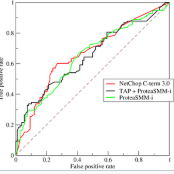Abdominal auscultation is a convenient, safe and inexpensive method to assess bowel conditions, which is essential in neonatal care. It helps early detection of neonatal bowel dysfunctions and allows timely intervention. This paper presents a neonatal bowel sound detection method to assist the auscultation. Specifically, a Convolutional Neural Network (CNN) is proposed to classify peristalsis and non-peristalsis sounds. The classification is then optimized using a Laplace Hidden Semi-Markov Model (HSMM). The proposed method is validated on abdominal sounds from 49 newborn infants admitted to our tertiary Neonatal Intensive Care Unit (NICU). The results show that the method can effectively detect bowel sounds with accuracy and area under curve (AUC) score being 89.81% and 83.96% respectively, outperforming 13 baseline methods. Furthermore, the proposed Laplace HSMM refinement strategy is proven capable to enhance other bowel sound detection models. The outcomes of this work have the potential to facilitate future telehealth applications for neonatal care. The source code of our work can be found at: https://bitbucket.org/chirudeakin/neonatal-bowel-sound-classification/
翻译:腹部畸形是一种方便、安全和廉价的方法,用来评估肠胃状况,这是新生儿护理所必不可少的,有助于早期发现新生儿肠功能障碍,并允许及时干预。本文件介绍了新生儿肠道健康检测方法,以帮助进行肠道发育。具体地说,提议采用进化神经网络(CNN),对长效和无阴性声音进行分类。然后采用拉普尔隐藏半马尔科夫模型(HSMM)优化分类。拟议方法对进入我们三级新生儿强化护理单位(NICU)的49名新生儿的腹部声音进行验证。结果显示,该方法可有效检测出准确和曲线下区域(AUSC)的肠道声音,其分数分别为89.81%和83.96%,高于13个基线方法。此外,拟议的Laplace HSMM精密战略已证明能够加强其他肠道健康检测模型。这项工作的成果有可能促进未来对新生儿保健的远程保健应用。我们工作的源代码可见于:https://bibuckboundet.org/chirudealkin/nalbarigistrication-nenustricationa/nenistricationa/s。





